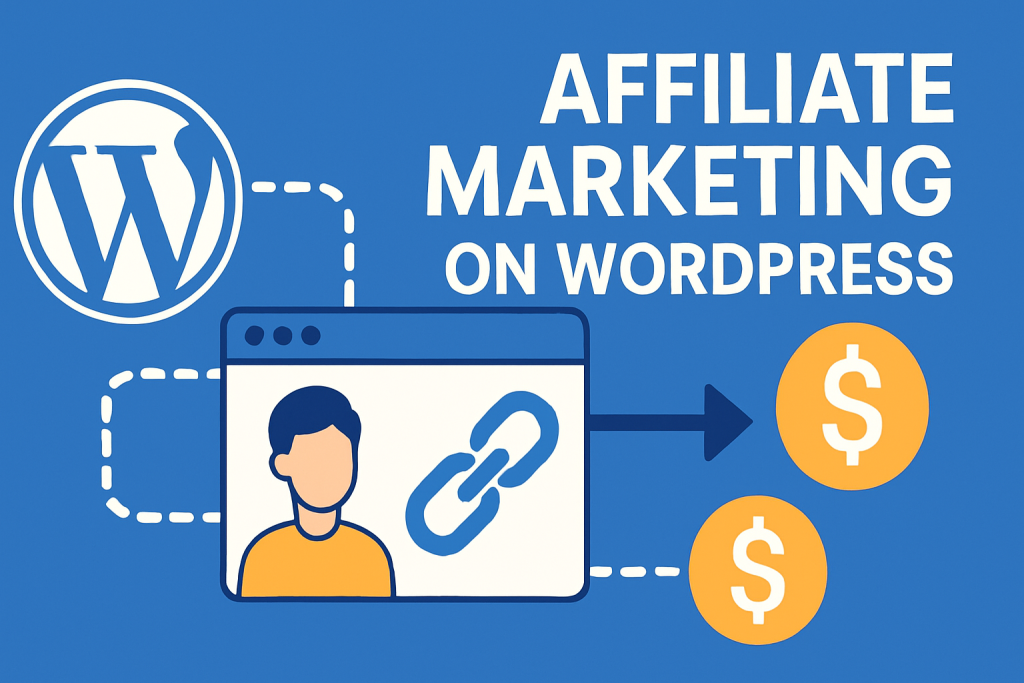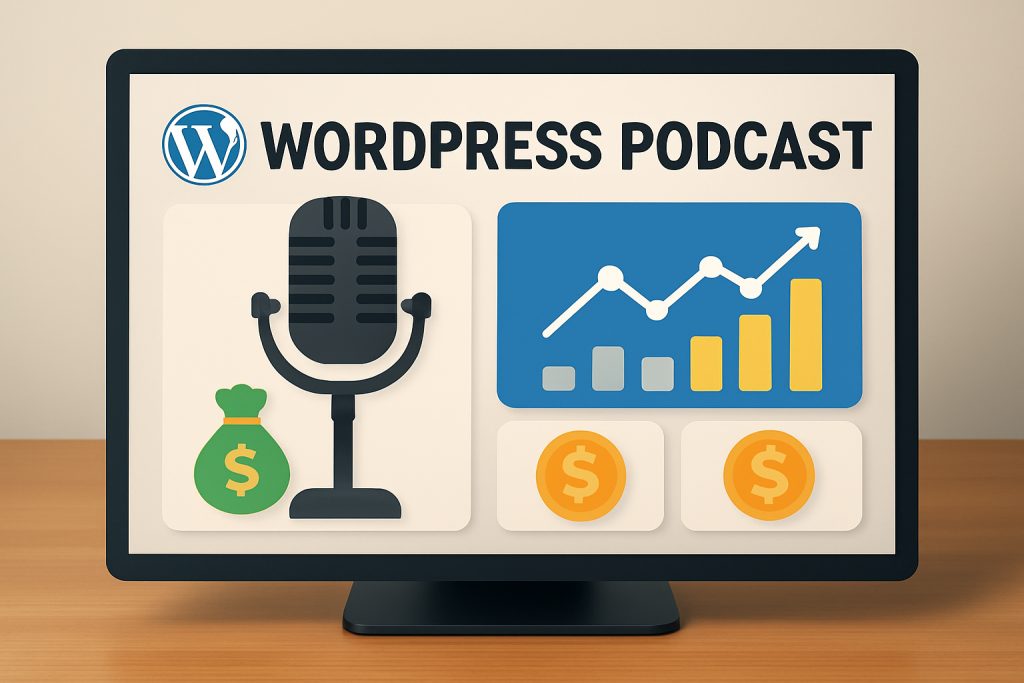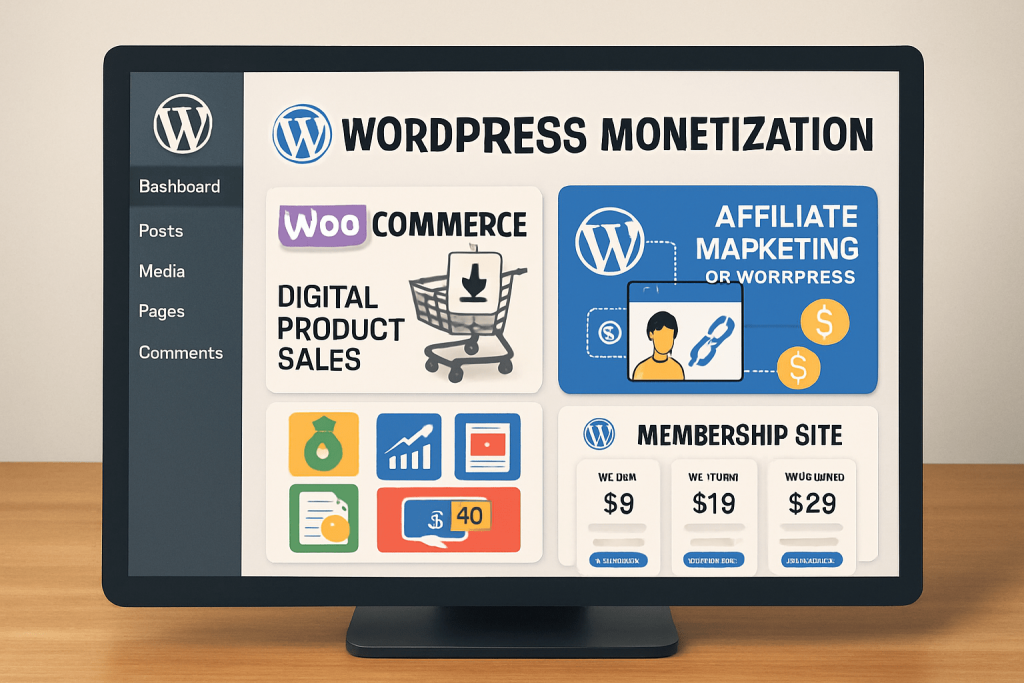Unlock new income opportunities with WordPress Monetization Techniques designed to turn your site into a revenue powerhouse. In this guide, you’ll discover proven methods—from high-converting affiliate marketing and tiered membership models to seamless WooCommerce digital sales and advanced AI-driven strategies—that help you attract targeted traffic, boost conversions, and build sustainable earnings on your WordPress platform.
WordPress Monetization Techniques Overview
WordPress’s dominance in the web development space isn’t accidental. The platform’s flexibility, extensive plugin ecosystem, and user-friendly interface make it the perfect foundation for building profitable online businesses. Unlike other platforms that limit your monetization options, WordPress provides complete control over your revenue streams while maintaining ownership of your content and customer data.
The beauty of WordPress monetization lies in its scalability. Whether you’re a solo blogger looking to earn passive income or an established business seeking to diversify revenue streams, WordPress accommodates all levels of ambition. From affiliate marketing and digital product sales to membership sites and consulting services, the possibilities are virtually limitless.
Affiliate Marketing Techniques for WordPress Monetization

Affiliate marketing represents one of the most accessible and profitable monetization methods for WordPress websites. This strategy involves promoting products or services from other companies and earning commissions on successful referrals.
Strategic Implementation of Affiliate Marketing
Content-Driven Approach: The key to successful affiliate marketing lies in creating valuable, informative content that naturally incorporates affiliate links. Product reviews, comparison articles, and tutorial posts perform exceptionally well when they provide genuine value to readers.
Plugin Optimization: WordPress offers several powerful plugins specifically designed for affiliate marketing. ThirstyAffiliates helps organize, cloak, and track affiliate links, while Pretty Links transforms long, unwieldy URLs into clean, branded links that build trust with your audience.
SEO Integration: Combining affiliate marketing with search engine optimization creates a powerful revenue-generating system. By targeting specific keywords and creating SEO-optimized content around affiliate products, you can attract organic traffic that converts into sales.
The most successful affiliate marketers focus on building authority within their niche before promoting products. This approach establishes trust with your audience and significantly improves conversion rates.
Membership Sites: Building Recurring Revenue Streams

Membership sites offer one of the most lucrative monetization models for WordPress users, providing predictable recurring revenue while building a loyal community around your content.
Monetization Models for Membership Sites
Subscription-Based Memberships: Charging recurring fees (monthly, quarterly, or annually) for access to premium content creates steady revenue streams. This model works particularly well for educational content, professional development resources, and exclusive communities.
Tiered Pricing Structure: Offering multiple membership levels caters to different budgets and needs. A basic tier might include standard content access, while premium tiers could offer one-on-one consultations, exclusive webinars, or advanced resources.
Hybrid Models: Combining subscription fees with one-time payments for specific products or services maximizes revenue potential. For example, you might offer a basic membership with additional charges for exclusive courses or coaching sessions.
WordPress plugins like MemberPress and Restrict Content Pro simplify membership site creation by handling user registration, content restriction, and payment processing.
E-commerce and Digital Product Sales
WordPress’s integration with WooCommerce transforms any website into a powerful e-commerce platform capable of selling both physical and digital products.
Digital Product Monetization
E-books and Digital Downloads: Selling digital products offers incredible scalability since they can be sold repeatedly without additional production costs. WordPress makes it easy to deliver digital downloads securely while maintaining control over your products.
Online Courses: The online education market continues to grow exponentially, making course creation one of the most profitable WordPress monetization strategies. Plugins like LearnDash and LearnPress provide comprehensive learning management systems that integrate seamlessly with WordPress.
Software and Applications: WordPress can serve as a platform for selling software products, plugins, and applications. The digital nature of these products allows for high profit margins and global distribution.
WooCommerce Optimization
WooCommerce powers over 28% of all online stores, making it the most popular e-commerce platform globally. Its tight integration with WordPress means you get world-class commerce functionality combined with exceptional content management capabilities.
Product Variations: WooCommerce supports complex product configurations, subscription services, and digital downloads, making it suitable for virtually any type of online business.
Payment Integration: The platform supports over 100 payment gateways, including Stripe, PayPal, and Square, ensuring customers can pay using their preferred methods.
Advertising and Sponsored Content
Advertising remains a cornerstone of WordPress monetization, with various options available depending on your audience size and niche.
Display Advertising
Google AdSense: The most popular advertising platform for bloggers, AdSense allows you to display targeted ads on your website and earn money based on clicks or impressions.
Direct Advertising: As your website grows, you can work directly with advertisers to command higher rates and maintain better control over ad placement.
Programmatic Advertising: Advanced advertising networks use algorithms to display the most relevant ads to your audience, often resulting in higher revenue per visitor.
Sponsored Content Integration
Sponsored Posts: Collaborating with brands to create sponsored content can be highly lucrative, especially if you maintain transparency and only promote products that align with your audience’s interests.
Native Advertising: Integrating sponsored content naturally into your regular posting schedule maintains user experience while generating revenue.
WordPress plugins like Advanced Ads and Ad Inserter provide sophisticated ad management capabilities, allowing you to optimize ad placement, schedule campaigns, and track performance.
Consulting and Professional Services
WordPress serves as an excellent platform for showcasing expertise and attracting consulting clients.
Building a Consulting Practice
Authority Building: Using WordPress to publish high-quality content establishes you as an expert in your field. Regular blog posts, case studies, and thought leadership pieces build credibility and attract potential clients.
Service Showcasing: WordPress themes designed for consultants provide professional layouts for displaying services, client testimonials, and portfolio pieces.
Lead Generation: Contact forms, appointment booking systems, and consultation request forms integrated into your WordPress site streamline the client acquisition process.
Recurring Revenue Models
Retainer Agreements: Offering ongoing consulting services through monthly retainers provides predictable income while building long-term client relationships.
Productized Consulting: Packaging your expertise into standardized offerings makes it easier to scale your consulting practice.
WordPress-Specific Revenue Streams
Theme and Plugin Development
Custom Theme Development: Creating and selling WordPress themes can be extremely profitable, especially if you target specific industries or niches. Marketplaces like ThemeForest provide platforms for selling your creations.
Plugin Development: WordPress’s plugin ecosystem offers opportunities to create solutions for common problems. Successful plugins can generate significant recurring revenue through premium versions or ongoing support.
WordPress Maintenance Services
Website Maintenance: Many WordPress users need ongoing support for updates, security, and optimization. Offering maintenance services creates recurring revenue while helping clients maintain their websites.
White-Label Services: Agencies can offer maintenance services under their own brand, providing additional value to clients while generating steady income.
WordPress Training and Education
Online Courses: Teaching WordPress skills through online courses can be highly profitable. The demand for WordPress education continues to grow as more people seek to build their own websites.
Coaching and Consulting: One-on-one WordPress coaching provides personalized value and commands premium pricing.
Content Marketing and SEO Integration

WordPress’s SEO-friendly architecture makes it ideal for content marketing strategies that drive organic traffic and support monetization efforts.
SEO-Optimized Content Strategy
Keyword Research: Using tools like Ubersuggest and targeting long-tail keywords helps attract qualified traffic that’s more likely to convert.
Content Optimization: WordPress SEO plugins like Yoast SEO and Rank Math provide guidance for optimizing content, meta descriptions, and technical SEO elements.
Internal Linking: Strategic internal linking improves user experience and helps search engines understand your site structure, ultimately supporting all monetization efforts.
Performance Optimization
Site Speed: Fast-loading websites provide better user experiences and rank higher in search results. WordPress caching plugins and image optimization tools are essential for maintaining optimal performance.
Mobile Optimization: With mobile-first indexing, ensuring your WordPress site performs well on mobile devices is crucial for maintaining traffic and revenue.
Email Marketing and Lead Generation
WordPress integrates seamlessly with email marketing platforms, enabling you to build subscriber lists and nurture leads.
List Building Strategies
Lead Magnets: Offering valuable free resources in exchange for email addresses helps build your subscriber base.
Email Automation: Automated email sequences can nurture leads and promote your products or services without constant manual effort.
Newsletter Monetization: Email newsletters can include affiliate promotions, product announcements, and exclusive offers for subscribers.
Podcast Monetization Through WordPress

WordPress provides excellent support for podcast hosting and monetization.
Podcast Revenue Streams
Sponsorships: Podcast advertising can be highly lucrative, especially for niche audiences. Current rates range from $20-85 CPM depending on your audience.
Listener Support: Platforms like Patreon and Buy Me a Coffee integrate with WordPress to enable direct listener support.
Premium Content: Offering bonus episodes, ad-free content, or exclusive interviews to paying subscribers creates additional revenue streams.
WordPress Podcast Integration
Podcast Plugins: WordPress plugins like Podcast Player and Seriously Simple Podcasting make it easy to integrate podcast content into your website.
Content Syndication: WordPress can automatically distribute your podcast content across multiple platforms while maintaining your website as the central hub.
Advanced Monetization Strategies
Directory and Listing Sites
Local Business Directories: Creating niche directories for specific industries or geographic areas can generate revenue through listing fees and advertising.
Job Boards: Specialized job boards serve specific industries or skill sets, generating revenue through posting fees and premium listings.
Subscription Services
Content Subscriptions: Offering premium content through subscription services creates predictable recurring revenue.
Software as a Service (SaaS): WordPress can serve as the foundation for SaaS applications, though this requires more technical expertise.
Building Long-Term Success
Diversification Strategy
Multiple Revenue Streams: Successful WordPress monetization typically involves combining several strategies rather than relying on a single income source.
Audience Development: Building a loyal audience takes time but provides the foundation for all monetization efforts.
Analytics and Optimization
Performance Tracking: Using Google Analytics and other tracking tools helps you understand which monetization strategies work best for your audience.
A/B Testing: Testing different approaches to monetization helps optimize revenue potential.
Common Pitfalls and How to Avoid Them
Quality Over Quantity
Content Standards: Maintaining high content quality is essential for building trust and authority with your audience.
User Experience: Prioritizing user experience over short-term revenue gains leads to better long-term results.
Compliance and Transparency
Disclosure Requirements: Properly disclosing affiliate relationships and sponsored content is legally required and builds trust with your audience.
Privacy Regulations: Ensuring compliance with privacy laws like GDPR is essential for any monetization strategy.
The Future of WordPress Monetization
The WordPress monetization landscape continues to evolve with new opportunities emerging regularly. Artificial intelligence, automation, and changing user behaviors create new possibilities for generating revenue.
Emerging Trends
AI Integration: Artificial intelligence tools can help optimize content creation, SEO, and user experience.
Voice Search Optimization: Optimizing for voice search opens new opportunities for reaching audiences.
Video Content: The growing importance of video content creates new monetization opportunities through platforms like YouTube integration.
Conclusion
WordPress offers unparalleled opportunities for monetization, from simple affiliate marketing to complex e-commerce operations. The key to success lies in understanding your audience, providing genuine value, and implementing strategies that align with your goals and resources.
The most successful WordPress monetization strategies combine multiple revenue streams, prioritize user experience, and maintain focus on long-term sustainability rather than quick profits. Whether you’re just starting your WordPress journey or looking to optimize existing revenue streams, the techniques outlined in this guide provide a roadmap for building a profitable online presence.
Remember that successful monetization takes time, patience, and consistent effort. Start with one or two strategies that align with your strengths and interests, then gradually expand your monetization efforts as you gain experience and grow your audience. With WordPress as your foundation, the potential for building a thriving online business is virtually limitless.
The WordPress ecosystem continues to evolve, offering new opportunities for creative entrepreneurs to build sustainable revenue streams. By staying informed about emerging trends and maintaining focus on providing value to your audience, you can build a monetization strategy that supports your goals while serving your community’s needs.



